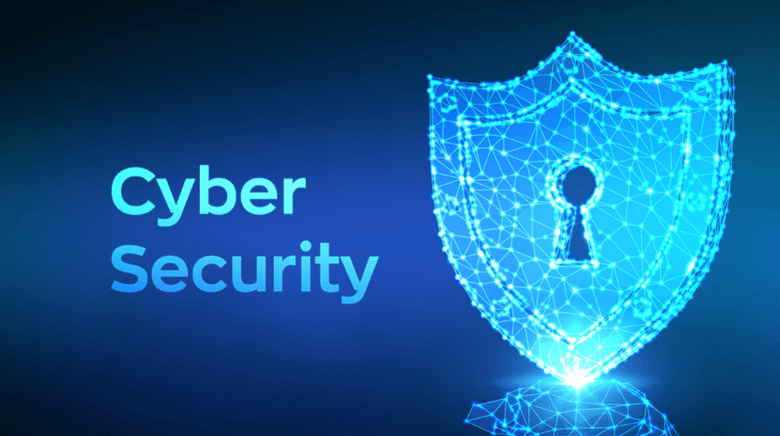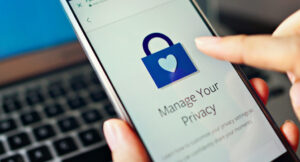In today’s fast-paced digital world, cybersecurity is more important than ever, as everything from banking to socialising depends on the internet. Every click, download, or online transaction can pose a risk if you’re not vigilant. Everyone needs to understand cybersecurity, not just techies. As hackers, scammers, and cybercriminals become increasingly sophisticated, it’s more important than ever to understand how to protect your data and privacy.
Threats like phishing emails and virus attacks are real. The good news is that you can protect yourself by following a few simple security rules. The first step in learning about cybersecurity is understanding how online dangers work and how to protect your personal and financial information. In this rapidly changing digital age, the more you know, the safer you are.
Understanding the Basics of Cybersecurity:
Cybersecurity refers to protecting your computers, smartphones, networks, and data from attacks or unauthorised access. It includes using antivirus software and setting strong passwords, as well as developing safe online habits. In short, cybersecurity is about protecting your digital assets and online identity from threats. The first thing newcomers to cybersecurity should do is exercise caution. You need to know which links to click, which links to share, and which links to avoid. Every time you go online, you expose yourself to risk, but you can take the right steps to mitigate it. Cybersecurity is like a digital lock that prevents others from intruding on your online life.
Why Everyone Needs to Pay Attention to Cybersecurity:
Many people think hackers only target large corporations and government agencies, but that’s not the case. Regular internet users are often the most vulnerable targets due to weak passwords, outdated devices, or a lack of sufficient cybersecurity knowledge. Cybercriminals can steal personal information, money, and even identity credentials from unaware individuals. Cybercriminals can use compromised information for fraud, scams, or even extortion. That’s why everyone needs cybersecurity; it’s not an option. Whether you use the internet for work, study, or entertainment, taking control of your cybersecurity is crucial for your peace of mind.
Common Cyber Threats You Should Know About:
The first step to protecting yourself is understanding the different types of cyberattacks. Some of the most common attacks include phishing emails that trick you into revealing personal information, malware that damages your computer, ransomware that locks your files, and identity theft that uses your personal information for fraud. These attacks are more dangerous because they often masquerade as legitimate messages or websites. Identifying suspicious links, attachments, or messages can help ensure your safety. One of the best ways to stay safe online is to be vigilant and not be quick to trust anyone.
Develop Good Password Habits:
Your password is the first line of defence against hackers. If you use weak or repeated passwords on multiple websites, cybercriminals can easily hack your accounts. Create passwords that are long enough, difficult to guess, and contain a combination of letters, numbers, and symbols. A strong password is like a key that only you possess, preventing others from accessing your personal information. Changing your passwords regularly and managing them securely with a password manager is also a beneficial habit. Protecting your passwords may seem simple, but it’s one of the most effective ways to protect your digital life.
How Do You Stay Safe Online in Real Life?
Using the internet leaves digital footprints susceptible to tracking, theft, or illegal use. Safe online browsing means carefully choosing which websites you visit and what information you share. Always ensure a website is secure (https://) before providing any personal information. Don’t download files from unknown sources or click on suspicious pop-ups. Public Wi-Fi networks, while convenient, can also pose security risks. Never log in to sensitive accounts when connected to public Wi-Fi networks. Using a VPN (Virtual Private Network) can make your online activities more secure.
The Role of Antivirus Protection and Software Updates:
To ensure your online security, you must keep your software and devices up to date. Software updates usually contain patches to fix vulnerabilities that hackers can exploit. If you don’t keep up with these updates, your device is vulnerable to attacks. Installing good antivirus software can also protect you against malware and viruses in real time. These programs run in the background, protecting your system while you go about your daily activities. Think of them as digital bodyguards, protecting your privacy and sensitive information.
Being Aware of Privacy on Social Media:
Cybercriminals often go for social media, which is a huge aspect of modern life. Sharing too much personal information, such as your birthday, location, or contact information, can make you more likely to be scammed or have your identity stolen. Changing your privacy settings and just sharing certain things online is a good strategy to lower your risk. Be careful with friend requests from people you don’t know, and don’t click on links that look suspect on social media. Before you publish on social media, think about what you’re going to say and be aware of your digital footprint.
How to Spot and Avoid Online Scams:
There are scammers all over the internet. Fake websites, emails, and adverts can all look real at first. Scammers employ feelings or a sense of urgency to get individuals to make quick judgements. The greatest way to protect yourself is to be attentive to your surroundings. If something sounds too good to be true, it generally is. Take care to check the origins of any unexpected message or offer, and never disclose personal or financial details with unverified contacts. Cybercriminals generally target people who move quickly, so being patient and sceptical can help you avoid big losses.
Keeping Your Personal and Financial Data Safe:
Hackers want your personal and financial information, so you should make sure it stays safe. When you shop online, always use secure payment methods, and don’t save your credit card information unless you have to. Whenever you can, use two-factor authentication (2FA). It adds an extra step to make sure you are who you say you are and keep outsiders out. Be aware of data breaches, and check your bank accounts often for any suspicious behaviour. The idea is to make it as hard as possible for hackers to get to your confidential information.
Conclusion:
Cybersecurity isn’t just a technical term anymore; it’s something everyone needs to know how to do in the digital world. As we become increasingly connected, we have more of a duty to keep our data, privacy, and devices safe. You don’t need to be an expert to stay safe online. Just use strong passwords, keep your software updated, and think before you click. You can safely use the internet without worry if you know about common hazards and take precautions to protect yourself. The basics of cybersecurity are being alert, preventing problems, and making smart choices. In today’s digital age, being knowledgeable is your best defence. You can enjoy the benefits of technology while keeping your digital life safe and private if you have the correct mindset and tools.
FAQs:
1. What is the most important thing that cybersecurity does?
The basic purpose of cybersecurity is to keep hackers and other people from getting into your devices, data, and online identity.
2. How can those who are new to cybersecurity get better at it?
Beginners can protect themselves by using strong passwords, not clicking on links that look suspicious, using antivirus software, and keeping their devices up to date.
3. Is it safe to use Wi-Fi in public?
It’s not always safe to utilise public Wi-Fi networks because they are often not secure. When you’re connected, don’t log into sensitive accounts.
4. What does it mean to have two-factor authentication?
When you enter into your accounts, two-factor authentication (2FA) adds an extra step to check your identity. This makes it tougher for hackers to get in.
5. Why do I need to keep my software up to date?
Updates to software correct security holes that hackers could use to get in. Keeping your devices up to date will keep them safe and working well.




